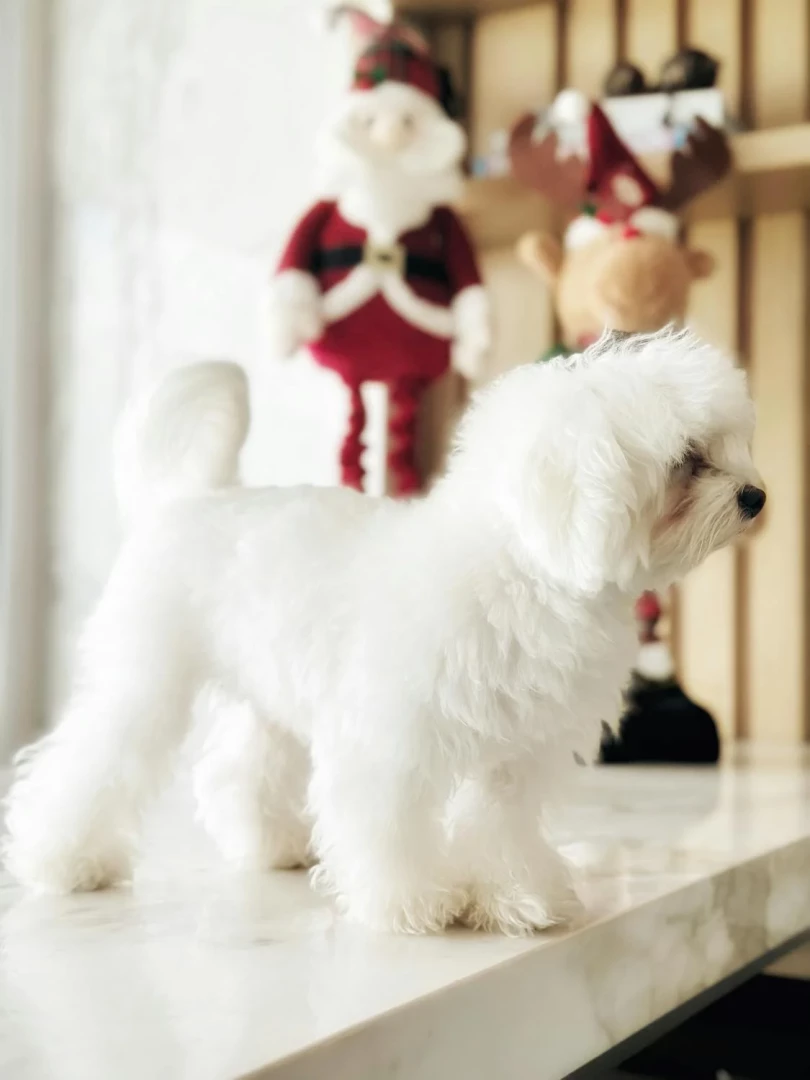
Maltese
About
The Maltese is a delightful, loving, and intelligent breed that makes a wonderful companion for those who can provide the attention and care they require. With their affectionate nature, adaptability, and charming appearance, Maltese dogs thrive in homes where they can be an integral part of family life. Their loyalty, playfulness, and elegance make them a cherished addition to any household looking for a devoted and spirited canine friend.
 Breed Size
Breed Size
-
Weight (Male)
2-3 kg
-
Weight (Female)
2-3 kg
-
Height (Male)
57-23 sm
-
Height (Female)
57-23 sm
 Coat
Coat
-
Fur Type
Silky
-
Color
One color
 Care
Care
-
Walk
>20 minutes/day
-
Breed group
Toy Group
-
Breed Size
XS
-
Demeanor category
Outgoing
 Breed Traits
Breed Traits
-
Barking
-
Good with young children
-
Drooling
-
Energy level value
-
Grooming frequency value
-
Good with other dogs
-
Trainability
 Breeds Club Recognition
Breeds Club Recognition
-
Trainability Category
>Agreeable
-
Temperament
>Gentle, Playful, Charming
Description
The Maltese is a small, affectionate companion dog, originally bred in the Mediterranean over 2,000 years ago for companionship and as a lapdog for nobility. This breed descends from ancient toy breeds, resulting in an intelligent, playful, and highly social companion.
- Origin: Mediterranean, developed for companionship.
- Smart and trainable: Quick learner with an eager-to-please nature.
- Loyal and affectionate: Forms deep bonds with its family.
- Energetic but adaptable: Requires moderate exercise and mental stimulation.
- Long, silky white coat: Low-shedding but needs regular grooming.
The Maltese is a friendly and charming companion, excelling in obedience, therapy work, and companionship. With proper training and early socialization, they become well-mannered, affectionate pets suited for families, first-time owners, and individuals alike.
